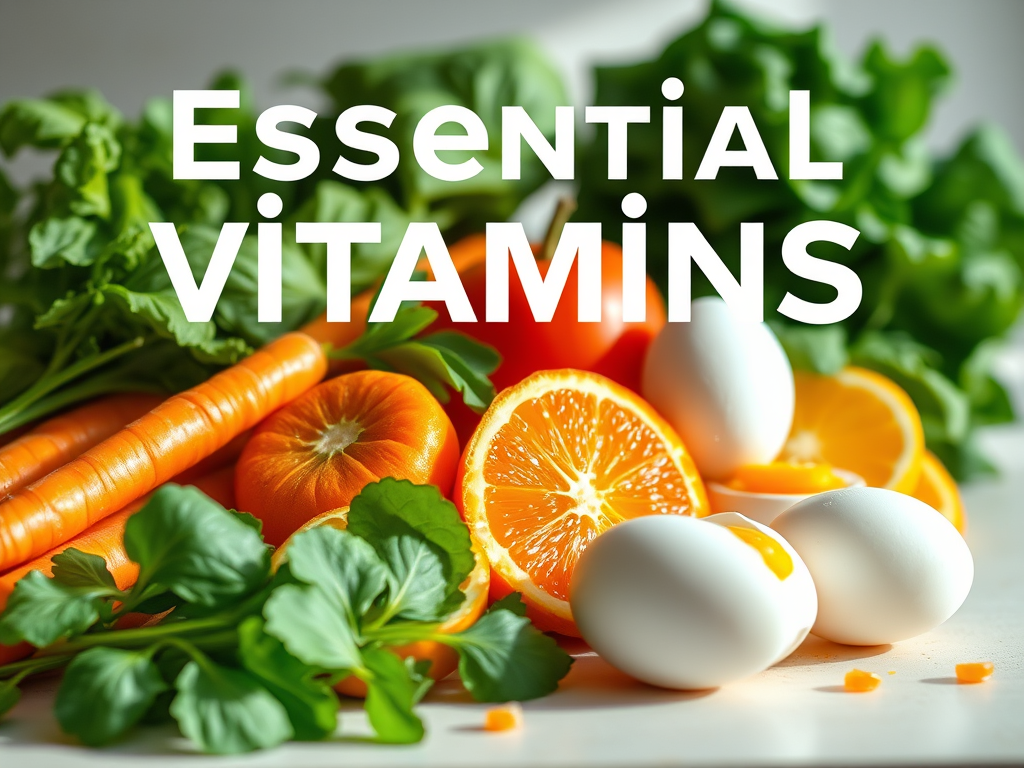Vitamins are essential nutrients that support countless bodily functions, from boosting immunity to maintaining strong bones and a healthy heart. Since our bodies cannot produce most vitamins on their own, we must obtain them through a balanced diet or supplements. Here are some of the most essential vitamins you need daily, their functions, and the best sources to incorporate into your diet.
1. Vitamin A – For Vision and Immunity
- What it does: Supports healthy vision, immune function, and skin health.
- Sources: Carrots, sweet potatoes, spinach, liver, and eggs.
2. Vitamin B1 (Thiamine) – For Energy Metabolism
- What it does: Helps convert food into energy and supports nerve function.
- Sources: Whole grains, legumes, pork, and sunflower seeds.
3. Vitamin B2 (Riboflavin) – For Cell Growth and Energy
- What it does: Aids in energy production and cellular function.
- Sources: Dairy products, eggs, lean meats, and green leafy vegetables.
4. Vitamin B3 (Niacin) – For Digestion and Nervous System Health
- What it does: Supports digestion, nerve function, and skin health.
- Sources: Chicken, fish, peanuts, and mushrooms.
5. Vitamin B5 (Pantothenic Acid) – For Hormone Production
- What it does: Helps produce hormones and break down fats and carbohydrates.
- Sources: Avocados, whole grains, broccoli, and eggs.
6. Vitamin B6 (Pyridoxine) – For Brain Health and Mood Regulation
- What it does: Supports brain development, mood regulation, and immune function.
- Sources: Bananas, poultry, potatoes, and fortified cereals.
7. Vitamin B7 (Biotin) – For Hair, Skin, and Nails
- What it does: Strengthens hair, skin, and nails, and helps with metabolism.
- Sources: Nuts, seeds, eggs, and salmon.
8. Vitamin B9 (Folate/Folic Acid) – For DNA and Red Blood Cell Formation
- What it does: Essential for cell growth, especially during pregnancy.
- Sources: Leafy greens, legumes, citrus fruits, and fortified grains.
9. Vitamin B12 (Cobalamin) – For Red Blood Cells and Nerve Function
- What it does: Supports red blood cell formation and nerve function.
- Sources: Meat, dairy, eggs, and fortified plant-based milk.
10. Vitamin C – For Immune Support and Collagen Production
- What it does: Boosts immunity, aids in wound healing, and enhances iron absorption.
- Sources: Oranges, strawberries, bell peppers, and tomatoes.
11. Vitamin D – For Bone Health and Immune Support
- What it does: Helps the body absorb calcium and supports immune function.
- Sources: Sunlight, fatty fish, fortified dairy, and mushrooms.
12. Vitamin E – For Skin and Heart Health
- What it does: Acts as an antioxidant, protecting cells from damage.
- Sources: Nuts, seeds, spinach, and sunflower oil.
13. Vitamin K – For Blood Clotting and Bone Health
- What it does: Aids in blood clotting and supports bone strength.
- Sources: Leafy greens, broccoli, and fermented foods.
Final Thoughts
Eating a balanced diet rich in whole foods is the best way to ensure you get these essential vitamins every day. If you have dietary restrictions or health conditions that limit nutrient absorption, consider talking to a healthcare provider about supplements. Prioritizing these vitamins can help you maintain overall health, energy, and well-being!

